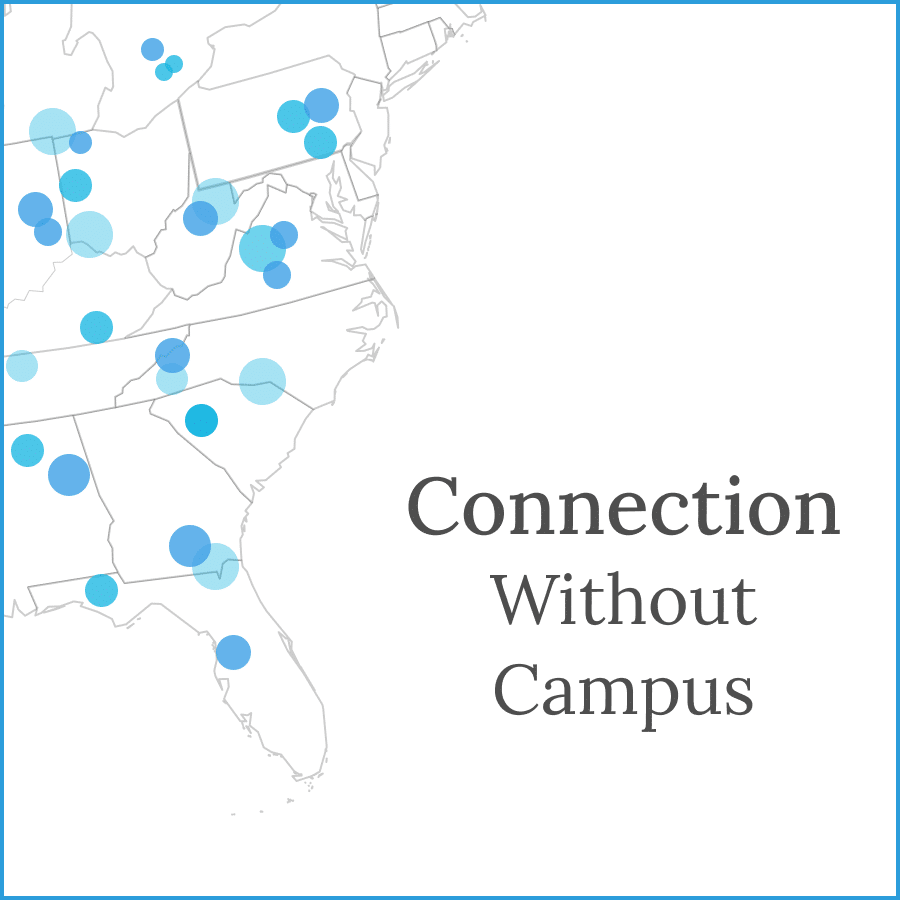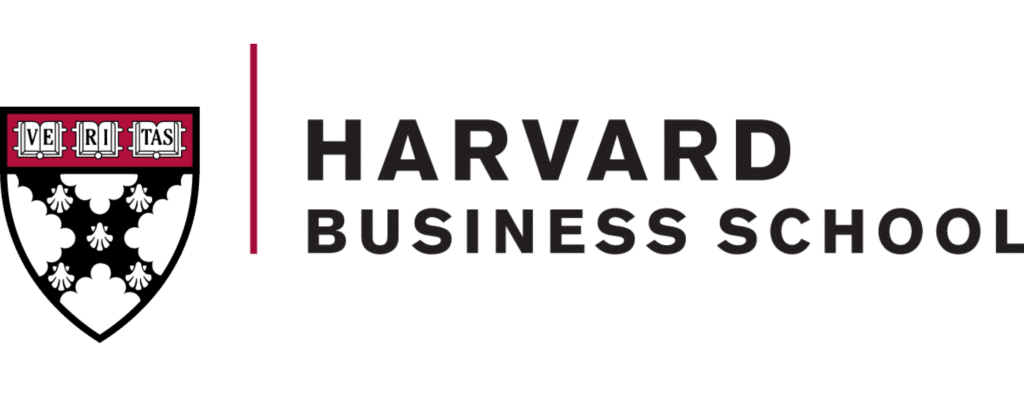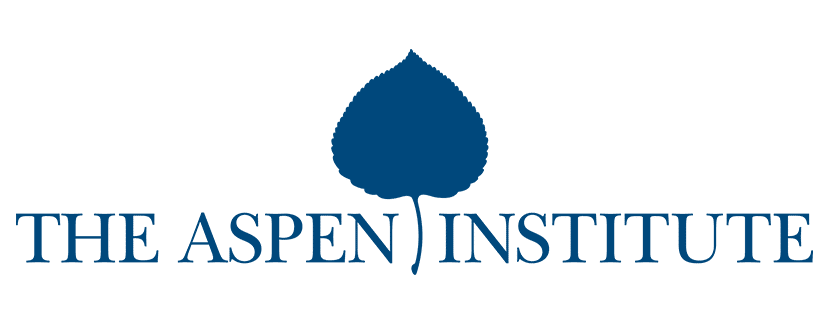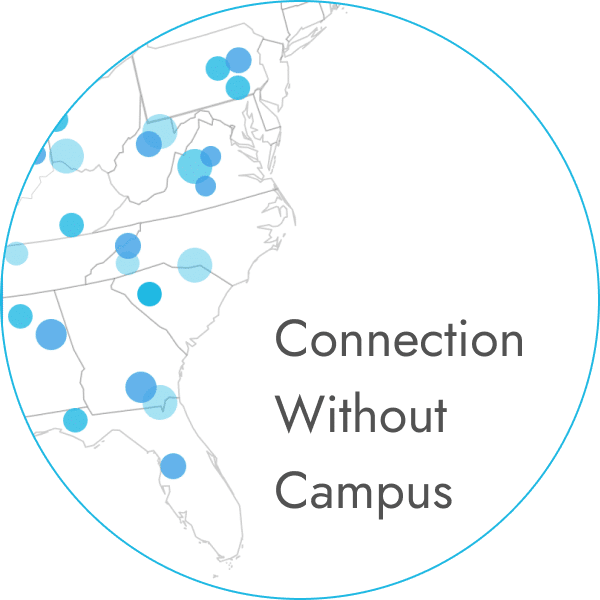
We miss campuses! The smell of crisp fall air, sparkling new school supplies and the smiles of friends we missed all summer. This isn’t just nostalgia; the campus is a powerful setting that energizes learning.
“An almost seismic sense of expectation emanates from a college campus. That is the true elixir of youth: the grand, the glorious, the magnificent hopes and dreams because all things – all things – are yet possible.” – Carolyn Hart
We mourn the loss of campuses for our children, but also for our grown-up selves. Some of the best ideas flow from formal offsite gatherings with colleagues, or informal dinners shared with peers.
Bolstered by a true sense of urgency and ingenuity, the instructors at The Wharton School of Business at the University of Pennsylvania, Harvard Business School and The Aspen Institute, turned to Circl.es to create an online space that feels as connected as meeting face-to-face. The answer, in part, was a unique virtual setting. But they also did things differently, designing inclusive interactions and using a process for engaging in small groups… circles instead of rows.
The Wharton School of Business
The Wharton School of Business is one of the nation’s top business programs. With 600+ incoming freshmen, they needed a way to welcome and orient new students that felt as genuine as the on-campus experience.
Circl.es is a system to create intentional, inclusive and authentic dialogue. Wharton’s goal was to instill a sense of belonging and connection for new students, who would not be able to establish community in an in-person environment. They married restorative practices with Circl.es technology to run 54 small group sessions in one day, welcoming approximately 600 new students and fostering a sense of community among them, even without setting foot on campus.
Each group was run by a Circl.es-trained facilitator (50+ upperclassmen leaders), with incoming students joining from all over the world. Circl.es gave these students a wonderful opportunity to join others, and find positive connections in a time when they may have been feeling vulnerable and unsure. As one student put it…

“It was my first encounter with my cohort leaders and other classmates. It felt great to finally open up and hear what everyone is thinking about the upcoming semester.”
– Wharton Circles Participant
Circl.es allowed Wharton students to hold space for each other and engage in restorative practices to support all new students, and ensure their year got off to a great start.
Harvard Business School
During the Owner/President Management (OPM) program at Harvard Business School, top executives look to expand their business knowledge, leadership skills and the overall value of their companies. Building peer relationships is a central part of the value proposition. When on campus, the program deliberately houses eight students together in a specially configured “living group.”
Living groups share their most personal experiences, both from business and life, as part of the program, so connection with others is key. HBS didn’t replace this by trying to simulate late-night dorm interactions. Instead, they wove small group work into the online course curriculum. This occurred in pre-program Circles, where students’ connections before beginning their coursework provided a ‘running start’ to their OPM experience.
Once the program was underway, Circles provided the space for students to engage in case prep work, small group breakout sessions, pitch/innovation competitions and project work in a way that organically strengthened these connections. The space even provided opportunity for the more informal & social aspects of the experience. An HBS Circles participant noted that trust was established after just two sessions. It was also said that…

“Circles did the job that the bar, dorm and cafe used to do.” – Chad Gordon, OPM Program Lead
By encouraging authentic virtual conversations, Circl.es transformed working sessions into opportunities for real connection and relationship-building.
The Aspen Institute
The Resnick Aspen Action Forum (RAAF) traditionally took place in Aspen, at one of the most stunning campus settings in the world. Without this asset, the team needed a new approach to ensure the 2020 seminar was as impactful online as it had been in person.
Because Circl.es allows people from all over the world to connect deeply, the seemingly insurmountable drawback of losing their campus actually turned into a benefit for RAAF; more leaders from around the world participated in 2020 than ever before.
One of the event leaders called Circl.es “The Great Equalizer” because people couldn’t see how everyone else arrived. They just logged in. The Circl.es platform provided the space for Aspen’s signature form of text-based dialogue with a cohort of Fellows from around the world. Over the course of the 3-day event, Fellows joined with their cohort, led by an Aspen Moderator for 90 minutes each day, and found points of connection with like-minded leaders they might have otherwise never encountered.
Within their Circles, everyone was given an equal voice in the dialogue. In the end, by ensuring inclusion and fostering intentional discussion, the Circles seminars garnered rave reviews, such as…

“Every single member of the group expressed gratitude, value, and a desire to meet again.” – Aspen Circle Participant
Creating Connection
For Wharton, Harvard Business School and the Aspen Institute, losing use of their campuses brought major challenges around delivering the high-quality education for which they are known. By teaming with Circl.es, they discovered a new path: intentional conversations that facilitate inclusive dialogue.
The world has shifted, and we know that we must strive to discover new ways of connecting. It’s not about a precise replication of the in-person meeting experience. No one can virtually reproduce a cool autumn breeze or the breaking in of new books. However, by keeping their eyes on the essential goal of human connection, these three institutions forged new ground in the Fall of 2020, by delivering world-class instruction with the power of intentional, small group Circles. They found a way to deliver connection without the campus.
